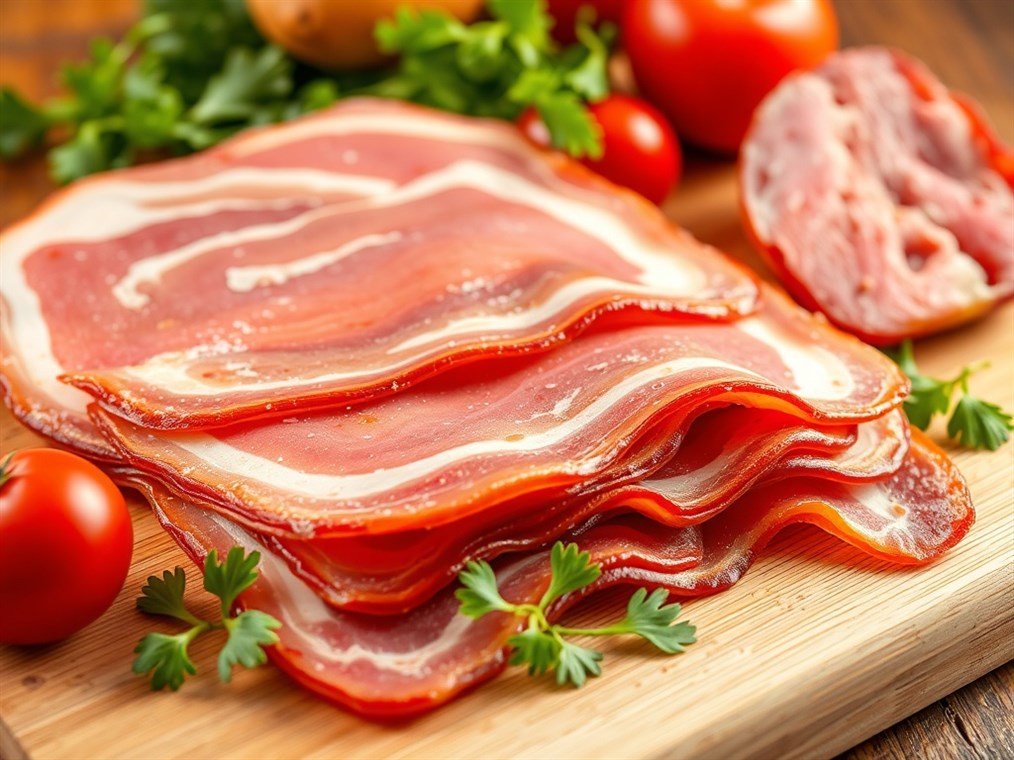Turkey Bacon: Healthy Swap or Just Cleverly Disguised Processed Meat?
Okay, so turkey bacon. It’s everywhere, right? Marketed as the “better for you” alternative to that crispy, smoky pork bacon we all secretly crave. But does it really live up to the hype? Or is it just another wolf in sheep’s clothing – a processed meat pretending to be healthy? Let’s get real about what turkey bacon actually is.
First things first, what even is processed meat? The World Health Organization (WHO) has a pretty clear definition: if meat’s been salted, cured, smoked, or tinkered with in any way to make it last longer or taste better, it’s processed. Think sausages, hot dogs, deli slices… you get the picture. And yep, bacon falls squarely into that category, too. The Physicians Committee for Responsible Medicine highlights that these meats often get a dose of preservatives to tweak their taste and texture, or to extend their shelf life.
Now, let’s talk turkey – literally. Turkey bacon isn’t just sliced turkey breast. Nope. It’s usually a concoction of chopped or minced turkey bits, mixed with a bunch of seasonings, preservatives, and additives designed to mimic the taste and feel of the real deal. They press it into those familiar strips, and boom, “turkey bacon” is born.
Peeking at the ingredient list usually reveals a party of things like mechanically separated turkey, water, sugar, salt, and a whole alphabet soup of additives – potassium lactate, sodium nitrite, the works. Oh, and don’t forget the “natural smoke flavor” to give it that bacon-y aroma.
So, is it processed? No doubt about it. All that chopping, mixing, and adding stuff? That’s processing, plain and simple.
Alright, so it’s processed. But is it healthier? That’s the million-dollar question, isn’t it? On the surface, it seems like a win. Generally, turkey bacon has fewer calories and less fat than pork bacon. But hold your horses.
Here’s the lowdown: Turkey bacon tends to have fewer calories and less saturated fat. Pork bacon usually packs more protein. But here’s the kicker: turkey bacon can be just as salty, if not more so, than pork bacon. And to make up for the lack of fat (which, let’s face it, is where a lot of bacon’s flavor comes from), manufacturers often pump up the sugar content. Plus, while both have some vitamins and minerals, pork bacon often edges out turkey bacon in the nutrient department.
But here’s the thing that really matters: processed meats, in general, aren’t exactly health food. Study after study links them to some pretty nasty stuff.
We’re talking increased risk of cancer – the World Health Organization says processed meat is a Group 1 carcinogen, with strong links to colorectal cancer. And it doesn’t stop there. Heart disease, type 2 diabetes, even lung problems have been linked to regularly eating processed meats. The culprit? Probably things like those N-nitroso compounds and other chemicals that form during processing and cooking.
Okay, deep breaths. It’s not all doom and gloom. You can still enjoy turkey bacon (or any processed meat) without completely derailing your health. The trick is moderation. Think of it as an occasional treat, not a daily staple.
Here’s my personal playbook: I always scan the ingredient list. I try to avoid nitrates and nitrites when I can, and I keep an eye on the sodium levels. Some brands are starting to offer nitrate-free options, which is a step in the right direction. And when I do indulge, I make sure it’s part of a balanced meal with plenty of fruits, veggies, and whole grains. Oh, and I definitely don’t crank up the heat too high when I’m cooking it – nobody wants extra harmful compounds.
So, there you have it. Turkey bacon: processed, yes. A health food? Not really. A sometimes-okay treat? Definitely. Just remember to keep it in perspective, read those labels, and focus on building a diet that’s mostly filled with real, whole foods. Your body will thank you for it.

